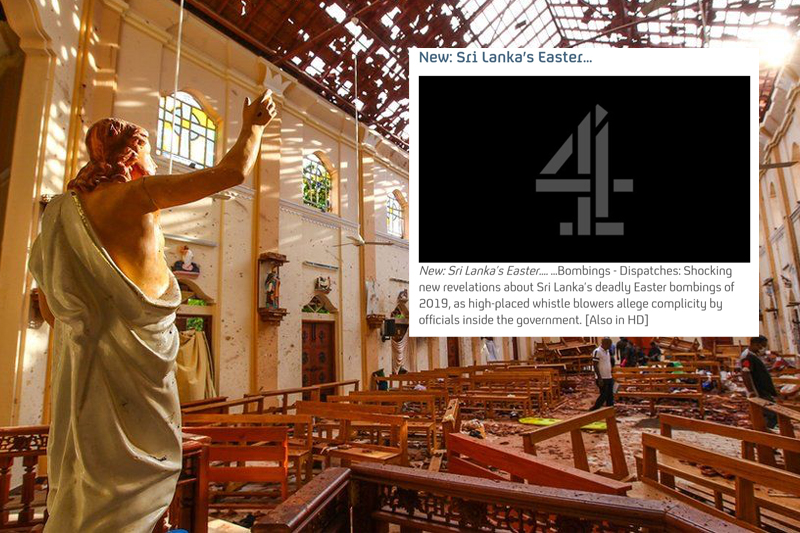The head of Sri Lanka’s premier criminal investigative unit at the time of the Easter Sunday attacks has publicly revealed the suspicious behaviour of intelligence services before, during and after the worst single terror attack in the country.
Senior DIG CID Ravi Seneviratne who retired in December 2019 had given evidence before three commissions of inquiry into the April 21, 2019 attacks, but his interview with TNL TV, on Monday night is the first time he went public.
Speaking to the network owned by President Ranil Wickremesinghe’s elder brother Shan, the now retired officer made it clear that there were several crucial unanswered questions on the role of intelligence operatives and agencies.
The Easter Sunday attacks killed at least 279 people and wounded another 500. The suicide bombers targeted three churches and three deluxe hotels. At least 45 foreigners were among those killed.
Seneviratne said there were attempts to distract the investigations into two other incidents prior to the Easter Sunday bombings but linked to lead bomber Zahran Hashim. These related to the role of the State Intelligence Service (SIS) and the Directorate of Military Intelligence (DMI).
Seneviratne was appointed head of the CID by President Mahinda Rajapaksa in 2012 and he was retained in the post by President Maithripala Sirisena. He remained in the post till his retirement in December 2019.
The following are the five key take aways from Ravi Seneviratne’s two-hour candid interview.
1) There was another individual who controlled Zahran Hashim, the lead suicide bomber in the Easter Sunday attacks. This person is highly intelligent, had the capability to organise the first ever coordinated terror attack in Sri Lanka, something even the LTTE failed to do.
Seneviratne noted that Zahran, an individual without a proper education, may not have had the wherewithal to carry out such a coordinated attack.
“There was someone above him. Some one who is very intelligent, with training and experience. With the ability to coordinate so many people to carry out such an attack.”
2) State and military intelligence units had known and even worked closely with Easter Sunday bombers/Zahran Hashim and his associates before, during and after the attacks.
3) Both military intelligence and the State Intelligence Service actively worked to divert attention to ex-LTTE cadres over the murder of two policemen at Vavunathivu. They had even planted “evidence” in a bid to prove it. CID was highly suspicious.
4) SIS inspector Bandara was the person who instigated Zahran’s group to get establish links and claim the Easter Sunday bombings as the work of the ISIS. Investigations into this matter was halted. There was no evidence to suggest that there was an external ISIS support to Zahran and company.
5) Current SIS chief Suresh Sallay had a difficult relationship with the CID. In fact, the CID had to report him to court to get required information. Channel 4 allegations against Suresh Sallay also must be investigated.
Access the full interview here: https://www.youtube.com/watch?app=desktop&v=RXa6F1qnR_0


